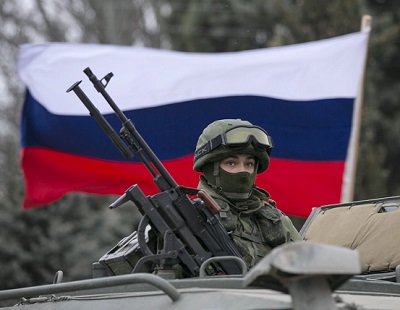 The armed violence within Ukraine and the tensions between NATO and the Russian Federation are increasing. There are real dangers of the situation slipping out of control. The 100th anniversary of the start of the 1914-1918 World War is a reminder of the unintended consequences of action and reaction on the part of political leaders. While there is little danger of a wide-spread armed conflict, the possibility of a new “Cold War” with its military buildup, lack of cooperation, and suppression of voices of opposition is real. A long-planned NATO Summit meeting in Wales September 4-5th is likely to be strongly focused on the Ukraine and Russia’s actions.
The armed violence within Ukraine and the tensions between NATO and the Russian Federation are increasing. There are real dangers of the situation slipping out of control. The 100th anniversary of the start of the 1914-1918 World War is a reminder of the unintended consequences of action and reaction on the part of political leaders. While there is little danger of a wide-spread armed conflict, the possibility of a new “Cold War” with its military buildup, lack of cooperation, and suppression of voices of opposition is real. A long-planned NATO Summit meeting in Wales September 4-5th is likely to be strongly focused on the Ukraine and Russia’s actions.
In two articles I previously wrote in Toward Freedom, “A Divided Ukraine Highlights Europe’s Next Big Challenges” (March 13, 2014) and “Ukraine. A Federalist Future?” (April 28, 2014), I outlined two positions which I believe are still valid although the opposite of what I proposed has been carried out. In “A Federalist Future?” I held that a new federal or con-federal structure within Ukraine was possible and desirable. A federal Ukraine was preferable to the creation of an eastern mini-state on the pattern of Abkhazia and South Ossetia in Georgia or Transnistria in Moldova. I stressed that constitution-making in periods of armed tension is difficult and that while the final form of a new structure was up to the Ukrainians, outside specialists on federal forms of government might be useful in creating a framework for discussion of forms of autonomy and values to be included in a new constitution.
Instead of constitutional dialogue, there has been an effort at armed re-conquest of the eastern area held by the “pro-Russian separatists” as they are usually called. The fighting has led to some 400,000 people being displaced from their homes, about evenly divided between those going to Russia as refugees and those displaced within Ukraine. There is some evidence of the Russian military coming to the aid of the “pro-Russian separatists.” While this is not a “Russian invasion of Ukraine” it has led the Ukrainian government to ask support from NATO. The Russian government fears an “eastern expansion of NATO” and a de facto incorporation of Ukraine into the Western alliance.
In “Europe’s Next Big Challenges” I stressed that both the European Union (EU) and the Russian Federation were working on ambitious plans for economic expansion. The EU is in important trade negotiations with the USA and there are ongoing discussions concerning the integration of the states of former Yugoslavia and forms of trade association with Turkey and North Africa. For an EU area with stagnant economic growth, its agenda was more than enough. Likewise, the Russian economy, fragile in all sectors except oil and gas, was working on an extensive Eurasian Customs Union − a first step to an even deeper economic structure. Thus the issue at hand for the world was to find ways for EU-USA-Russia−Asia economic accords.
Rather than focusing on these vital economic possibilities, the EU and the USA imposed economic sanctions on Russia, followed immediately by Russian sanctions, notably on EU food products causing difficulties for the EU agricultural production. Russia has not yet used the “oil weapon” but its possible use is on everyone’s mind.
Given that my suggestions have led to the opposite actions, I hesitate to propose any new steps. It is not clear to me at this stage, what positive role non-governmental organizations can play. During the Cold War years, especially during the 1970s and 1980s, the Soviet Union carried out discussions with Western intellectuals through the World Peace Council and a few other NGOs. The Soviet participants were more part of the Soviet “Establishment” − usually members of the Academy of Sciences’ ‘think tanks’ − than those of us from the West who had contacts with Western governments but were not really part of the “foreign policy elite.”
Since the end of the Soviet Union, there is no Russian NGO which holds the semi-government position that the Soviet Peace Council once held. Thus the greater difficulty today for certain NGOs to have discussions with Russian NGOs which reflect to a large extent the government’s positions. There are no permanent representatives of Russian NGOs at the UN in Geneva as there had been of the World Peace Council in the 1970s-1980s. The same holds true, to an even larger extent, of Ukrainian NGOs.
Thus today, as NGO representatives, we are back in the position we had in the early Cold War 1950s-1960s when there was no continuous intellectual discussion of policy issues with Russians. The Soviet Union organized big conferences of youth, women, etc, but the participants usually echoed the Soviet positions. It was only in the mid-1970s that the situation changed to small, serious discussions where one could see new currents of thought among Eastern Europeans and Soviets. The Ukraine tensions may be a sign that new avenues of discussion are needed among NGOs.
In the meantime, we are back to our usual role of offering unasked advice to governments − in this case to keep events in balance and to keep an eye on longer-term interests.
Rene Wadlow is the Representative to the United Nations, Geneva of the Association of World Citizens.
